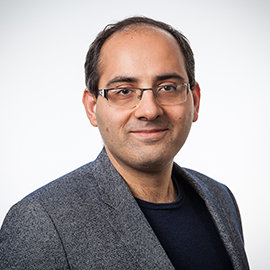Scientists design ventilator made of standard parts
Amir Zadpoor and a team of scientists from the BioMechanical Engineering department are testing the first prototypes of a ventilator that consists entirely of standard parts. These parts are available locally almost all over the world and can be produced by hundreds of manufacturers. This means that, in many cases, the ventilator can be assembled locally. It is hoped that the design will be able to respond to the demand for ventilators and offer a solution to the logistical problems resulting from a shortage of specific components.
Air for All
This project is part of Air for All, an umbrella initiative of TU Delft that consists of three projects. The first project is OperationAIR, where a team of students developed the AIRone within just a few weeks. This is a working prototype of a simplified ventilator that is relatively easy to scale up and can serve as an emergency solution in the event of a shortage of regular ventilators. The second project is being carried out by Gerwin Smit and his team. They are currently developing a mechanical ventilator inspired by a ventilator from the 1960s, which is actually one of the objects in the medical collection at Rijksmuseum Boerhaave. The design of the mechanical ventilator is such that anyone can easily construct and repair it, even in less developed countries.”

A.A. Zadpoor
Contact
TU Delft Science information officer
Carola Poleij
c.poleij@tudelft.nl
Amir Zadpoor: “Thanks to a concerted effort, we were able to design a working prototype in a matter of weeks. It’s incredible to see how our group, mainly consisting of PhD candidates and post-docs from 3mE, embarked on this project. The input we received from clinicians at LUMC and Erasmus MC in the initial phase was also extremely valuable for making sure the device could actually be used in clinical settings. To me, they’re all heroes. We very quickly received funding from the TU Delft COVID-19 Response Fund, which enabled us to take the first steps, and we hope to scale up further with new funding. Manufacturers and medical technology companies are now getting involved as well.”
Amir Zadpoor is Professor of Biomaterials and Tissue Biomechanics and one of the scientific leaders of the Medical Delta programme Regenerative Medicine 4D. Zadpoor and his team are collaborating on this project with clinicians from Erasmus MC and LUMC. This exchange of knowledge between engineers and clinicians is characteristic of Medical Delta collaborations.
Read more in Medical Delta’s press release.
